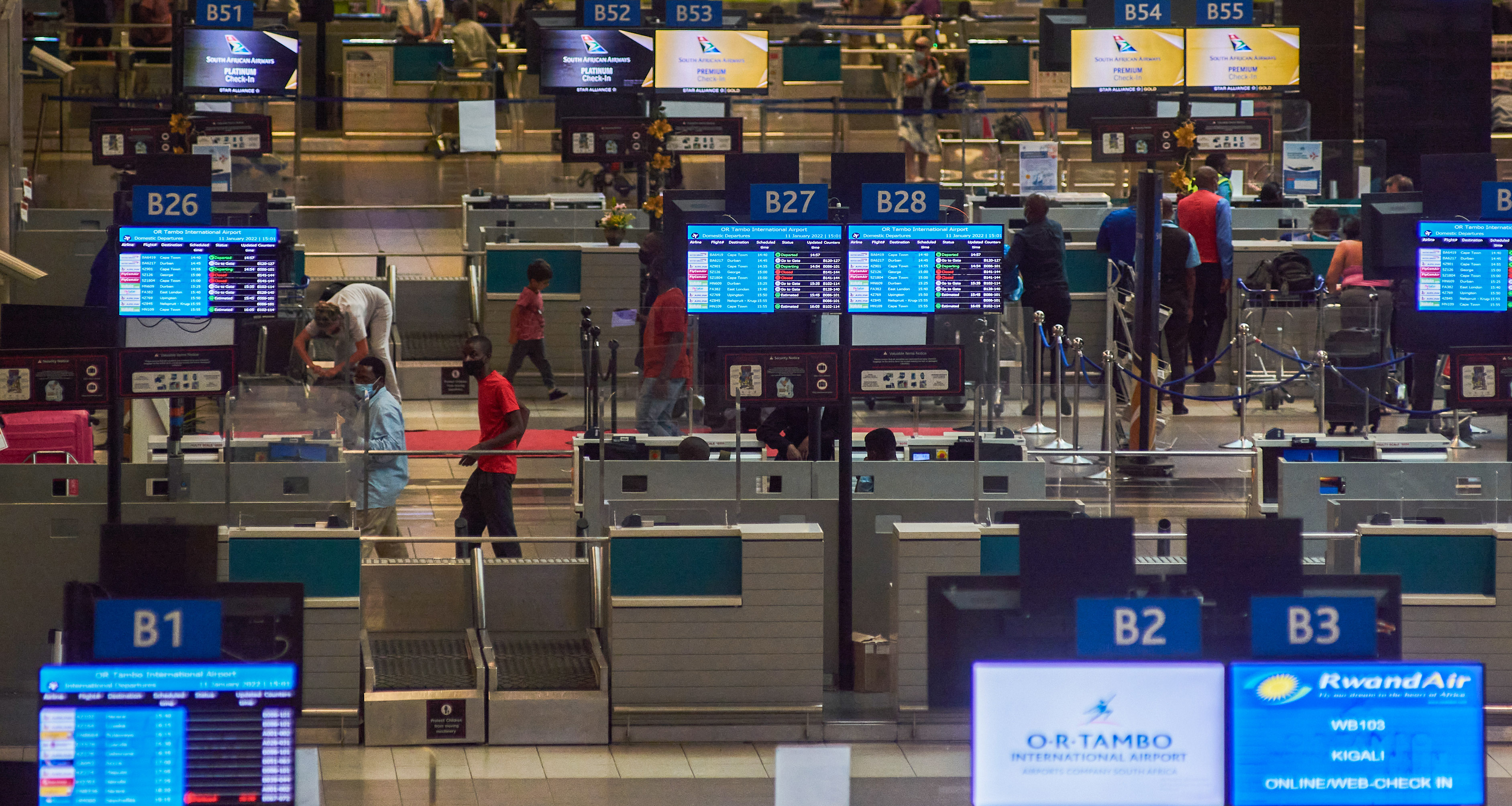In December 2024, the country’s busiest airport, O R Tambo International, experienced a fuel valve failure resulting in costly delays and cancellations.
On Wednesday it was Cape Town International’s turn when a damaged power cable affected refuelling at the airport, causing what are beginning to look like increasingly frequent air traffic jams akin to those on our roads.
The first we learned of the problem on Wednesday was while cruising on a Safair flight from Durban bound for Cape Town. We had all boarded and departed at about 2pm and had just evened out when the captain announced that we would not be able to land at Cape Town due to “parking problems”. We would be turning around and heading back to King Shaka International Airport.
The passengers let out a collective, cosmic groan so deep there was little fight left for any plane rage. On board were previously excited young people en route to a Robbie Williams concert at Cape Town Stadium.
A traveller whose dogsitter had just knocked off because she was about to be reunited with her fur kids in Muizenberg contemplated what they might do or how anxious they might become if left alone for a night.
Just then the captain was back on the tannoy announcing we would now be diverting to Gqeberha and not King Shaka as we had now been cleared for Cape Town but would not make it on our remaining fuel.
We landed in Cape Town at 8pm and slouched in our numbers to the pile-up-of-baggage queue where another hour-long, sweaty wait held us captive.
Some were not as lucky.
Publisher Melinda Ferguson was stranded at Gqeberha Airport where Flysafair staff were, in retrospect, understandably as confused as the rest of us.
“I am one of the lucky ones who got an extension at my hotel and a shuttle. But the airline has not offered anything! There are people milling around stranded. All flights tomorrow are full. What a mess.#Flysafair” she wrote on Facebook.
The warnings are there
The Fuels Industry Association of South Africa raised concern in December with regard to potential jet fuel shortages at large, popular airports.
In an interview with the SABC, Airports Company South Africa Group Executive for Operations, Terence Delamoney, explained that the repeated fuel shortages at OR Tambo were a result of wider issues in South Africa.
He said previously airports could rely on supply from five refineries, while at present there were only two left functional, the National Petroleum Refiners of South Africa and the Astron Refinery in Cape Town.
He said the country’s airports were becoming increasingly reliant on imported fuel.
Delamoney said that Airports Company South Africa had attempted to increase its “operational buffer stock” at the country’s airports from “around three to four days a week or more of fuel”.
The solution he suggested was to urgently increase refining capacity in South Africa as well as diversify supply among multiple facilities. A strategic petroleum reserve would also provide a “significant buffer”, he said.
The ghost of Tina Joemat-Pettersson
In 2015, South Africa’s strategic oil reserves were sold to private companies without public tender. The sales were made in secret and violated government policy and procurement laws.
Carol Paton in Business Day revealed that the Strategic Fuel Fund had quietly sold off close to the entire stockpile of the country’s crude oil reserve — 10 million barrels — in a closed tender without obtaining permission from the Treasury and at the bargain price of $28 a barrel.
Read more: DA calls for criminal inquiry after R5 billion sale of SA’s strategic fuel reserves
Political analyst Judith February wrote then that “the revelations are shocking not only because there was no sign-off from the finance minister or the Central Energy Fund board, but also — especially — because the former minister specifically told Parliament that no sale had taken place”.
How could Joemat-Pettersson not have known about the sale, asked February, especially as she had claimed no such thing would happen without her knowledge.
“Who benefited from this action and why was Gordhan (late Struggle stalwart and Cabinet minister Pravin) sidelined and the Public Finance Management Act breached?
“At best this seems like an act of gross incompetence; at worst, it smells like corruption — not unlike the Arms Deal, perhaps?”
Scrambling for fuel
Shaun Jacobs, writing in the Daily Investor, noted that the external shock against which there was no buffer had been the fire at the National Petroleum Refiners of South Africa, disabling one of only two refineries capable of producing jet fuel in South Africa.
The National Petroleum Refiners supplied 72% of jet fuel to OR Tambo and had represented a 108,000-barrel-a-day capacity, which was 30% of South Africa’s usual refining capacity.
Sasol, which owns just over 62% of the National Petroleum Refiners of South Africa, had not confirmed any planned date for the reopening of the plant while “assessments” were still under way.
Delamoney told the SABC in December that Airports Company South Africa expected the refinery to be back up and functional by 21 February 2025 and for regular supply to resume on 27 February.
Airlines in South Africa had been “informed and encouraged to either travel with additional fuel from their point of origin or to refuel at other airports”. Delamoney said this may even include “airlines going directly to companies to source their own supply of jet fuel”. DM





